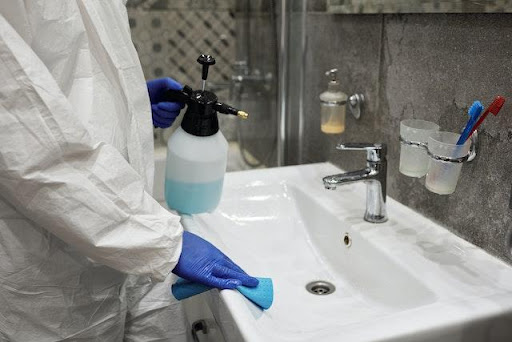
Affordable, easily-accessible and easy-to-use tools, along with an abundance of step-by-step how-to videos and websites, are enabling lots of ordinary homeowners to become enthusiastic DIY-ers. As per PG Management Group, much of what homeowners once paid technicians to do is now done by the homeowners themselves.
A few board the DIY express to save money (why pay somebody else to do something that you can do yourself?). Some do it as a hobby; because they find fixing things therapeutic. Others do it to become familiar with their home, its systems and how they work.
This increasing trend can be positive or negative, depending on who you talk to. There is one thing that we can all agree on; there is a point where homeowners cannot DIY. If you know what not to DIY in your home, the difference could be between paying $2000 versus $10,000.
That is particularly true when it comes to draining a house. Drains are generally thought of as tough and resilient enough to handle anything we give them. After all, much of the gunk and goo produced in your home eventually makes its way down into the drains. However, this is a false assumption.
While they are quite tough, home drains can be broken. They are only capable of holding certain kinds of material. For this reason, they are more prone to any other type of material finding its way into them. It is for this reason that drain cleaning is where the majority of homeowners commit their worst DIY mistakes.
You would do well to employ a local drain cleaning professional plumber. That is DIY why drain cleaning never quite gets the job done. The staggering cost of drain repair that some homeowners ultimately pay is brought about by relying on DIY do-it-quick band-aids to clear out their house’s drains.
Why is DIY drain cleaning such a bad idea?
You can miss the problem or make it bigger
Most of what you see when your drains have a problem is often just a symptom of the real issue. For instance, clogs may happen in floor and toilet drains as a result of blockages that are deep inside the sewer line. While your focus is often on treating the immediate symptoms, the distant cause of the problem steadily gets worse.
Also, some drain cleaning solutions only compound the problem. This is the case when a DIY drain cleaning method results in a punctured or weakened pipe or pipe junction. Issues like these happen with prodding tools which are a favorite DIY drain-cleaning tool for homeowners. Chemical drain cleaners can also compound your drain’s problems.
Homeowners use chemical drain cleaners because they promise to – and do – clear drain clogs quickly. But the effectiveness of chemical drain cleaners is due to the powerful corrosives inside them. The corrosives not only attack the debris inside the pipes, but they also attack your pipes. Constant use of chemical drain cleaners will weaken drainpipes and make them susceptible to leaks. In time you will eventually have to replace those pipes, needlessly.
Home tools are ineffective
Home tools are attractive because they get immediate results, even if they only create an illusion of solving the problem. When there is a blockage in your drain, that problem is not solved when the drain starts to flow again. The problem is solved when the material blocking the drain is removed. Most home-use solutions do not remove the cause of the blockage. For instance:
- Plungers are only effective when a blockage is close to the opening of the drain. A plunger can worsen the problem by pushing the blockage deeper into the pipe.
- Wire hangers and chemical cleaners only cut a hole through the offending material inside the drain, but the pipe’s diameter is still narrowed. Consistent use of these methods offers immediate reprieve that allows the blockage to get progressively worse.
- Baking soda & vinegar mix is a good option because it does not harm your pipes. The problem with this solution is it needs a closed container to be effective. Since drainpipes do not provide such an environment, this solution is ineffective for serious clogs.
You expose yourself to danger
The risk level attached to cleaning your home’s plumbing is not always realized. In addition to the ongoing risk of injury, proper safety gear and protocol are recommended when draining cleaning. Most homeowners do not have the proper PPE or safety information to avert injury when fixing drain issues in their homes.
Also, if you’ve ever had to employ the use of chemical drain cleaners, you’ll remember the pungent odor of the solution and the warnings printed on the side of the can. The toxic fumes from these cleaners are dangerous for the human and animal health. Chemical drain cleaners do not stop being dangerous when they reach your pipes; they continue to release fumes that can penetrate inside your home.
Lastly, residents clean the drains in their home piecemeal. They will isolate the issues and address them as standalone problems. Yet, a professional plumber sees the patterns and connects the dots. A plumber’s know-how enables them to determine the source of clogs in drains through the use of a sewer camera inspection and predict their final destiny, saving you lots of money.

